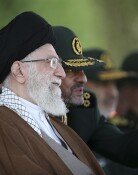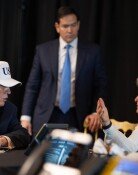Regional Parties-Corporate Political Funds to be Revived?
Regional Parties-Corporate Political Funds to be Revived?
Posted January. 12, 2005 22:19,
The Council of Political Reform (CPR), an advisory organization for the speaker of the National Assembly, was launched on January 11 to discuss the improvements to be made on current political relations laws, also known as the Oh Se-hoon Law
The Oh Se-hoon Law is another name for political relations laws (laws on elections, political funds, and political parties) that was passed through the National Assembly before the general election of April 15, 2004. It was named after the former assemblyman Oh Se-hoon, the former Grand National Party advisor for the Special Committee on Political Reform (SCPR) under the National Assembly, who declared non-candidacy and led the revision of the law at the time.
The attention is on how CPR will change the Oh Se-hoon Law that received much criticism from the political circle to suit real situations.
Adding Reality to the Political Relations Law
Professor Kim Kwang-woong of the Graduate School of Administration of Seoul National University, who was named to head the council, said in an interview with the reporter on January 11, It is better to have the politicians govern honorably at their best on their own terms rather than relying too heavily on rigid restrictions.
Chairman Kim added, however, Since there already is a special committee for political reforms under the National Assembly, we should focus more on reflecting the opinions of the general public as an advisory group for the speaker of the Assembly, warning against too much expectations from the political circle.
National Assemblys SCPR, headed by Chairman Lee Yoon-seong of the Grand National Party which will assist CPR`s activities, holds the abolition of regional parties; the prohibition of political assistance donations from corporations; the prohibition of candidates participation in fraternizing meetings including meetings of hometown relations, extended-families, and alumni; restrictions on shoulder-bands of election staff; and the political assistance fund limit of 150 million won as unrealistic restrictions.
The majority and the opposition parties want CPR to come up with an alternative for the regional party system as soon as possible. Their reasoning behind it is that party members in remote regions need the minimum working spaces to allow their participation in the partys activities even if it is not in the form of a former regional party system.
Regarding funds from corporations, they assert that the central party or the parties of cities or provinces should be allowed for some collections. However, the one and only representative from the economic circle in the CPR, Lee Seung-chul, the executive director of the Federation of Korean Industries, commented cautiously, It is true that the current political relations law has reduced the burden for the enterprises.
Concerns for a Backtrack
Former assemblyman Oh pointed out, It is not right to revise a law that was so welcomed by the people for little inconveniences without trying to help it take root. He also stressed, Though the smaller articles like the restrictions on shoulder-bands and funds may be adjusted a bit, the abolition of regional parties and the prohibition on corporate political donations are essential in stamping out the conglutination of economy and politics and in creating a political environment minus the extravagance.
The Democratic Labor Party also presented a statement and showed concerns about how the two large political parties can sacrifice CPR to unbind the restrictions of political funds.
A member of CPR said, Our responsibility is not complying with the politicians demands. It is to gather opinions of different sectors to relay it to them, on the condition of anonymity.
Ho-Won Choi bestiger@donga.com







